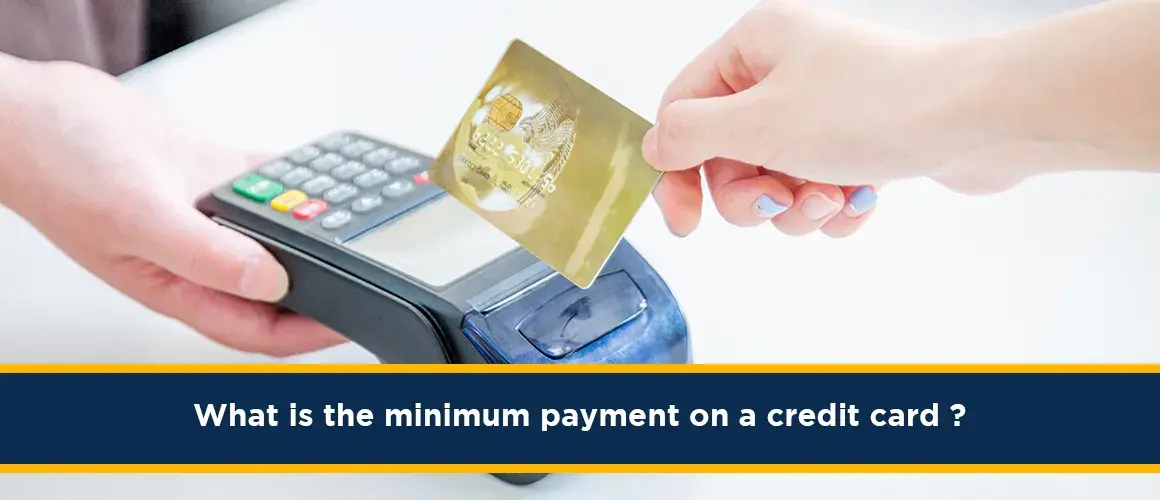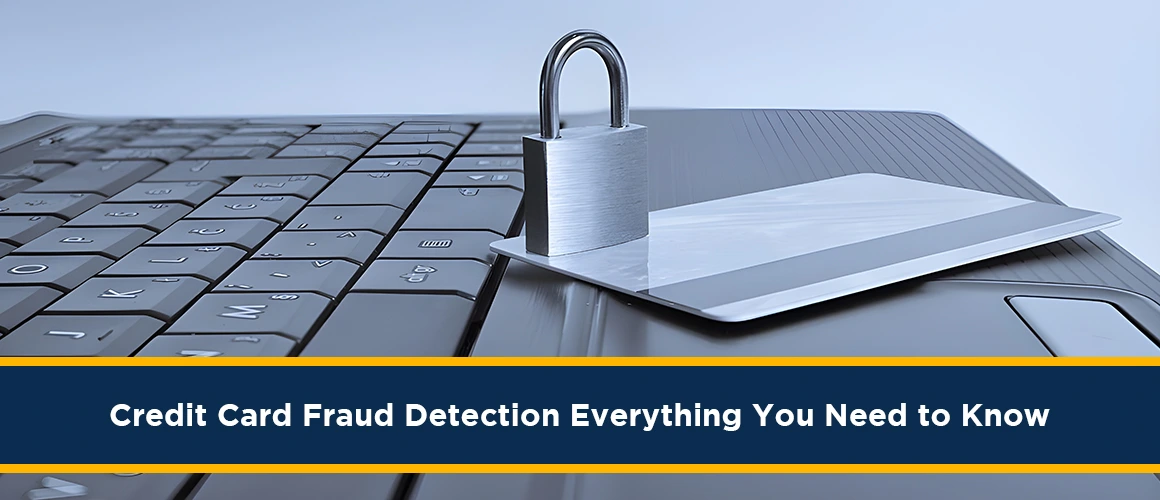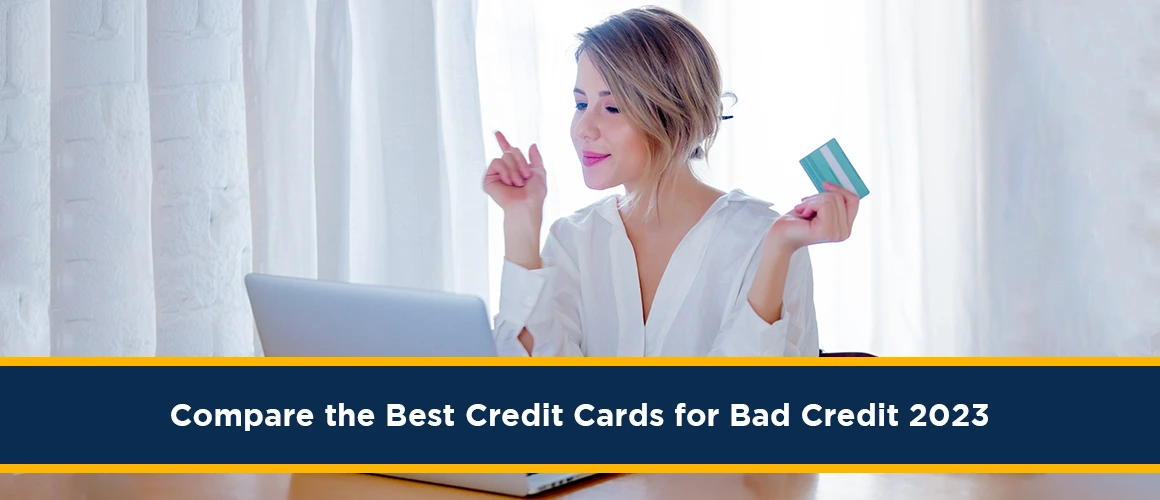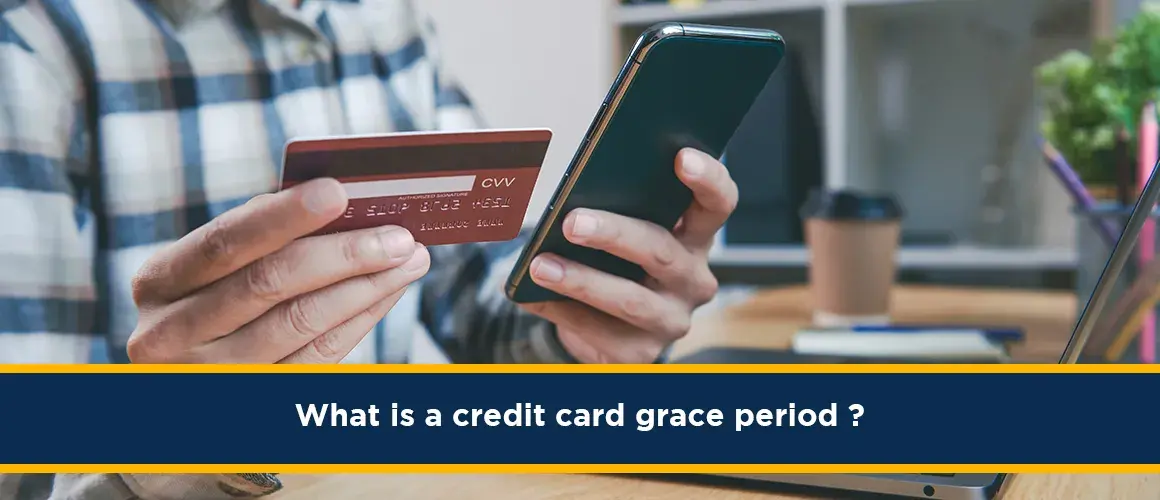What is the minimum payment on a credit card ?

Understanding the minimum payment on a credit card is crucial for managing your finances effectively. It's the smallest amount you can pay to avoid late fees and negative impacts on your credit score, but it's not the best financial strategy. This guide will break down what it is, how it's calculated, and why paying more is always the smarter choice.
What Exactly is the Minimum Payment on a Credit Card?
The minimum payment on a credit card is the smallest amount of money a cardholder is required to pay each billing cycle to keep their account in good standing. It's typically a small percentage of your outstanding balance, plus any interest and fees accrued during that period. While paying the minimum prevents immediate penalties like late fees and avoids a negative mark on your credit report for that billing cycle, it's a strategy that can lead to significant long-term financial challenges. Credit card issuers are legally required to disclose how this minimum payment is calculated and the consequences of only paying this amount on your monthly statement.
How is the Minimum Payment Calculated?
The calculation of a credit card's minimum payment isn't a single, universally applied formula. Instead, it varies among credit card issuers and is often determined by a combination of factors outlined in your cardholder agreement. Understanding these components is key to grasping why your minimum payment might change from month to month and how it impacts your overall debt.
Common Minimum Payment Formulas
While the exact formula is proprietary to each issuer, most credit card companies use a combination of the following elements to arrive at the minimum payment:
- Percentage of the New Balance: This is often the primary component. Issuers typically charge a percentage, such as 1% to 3%, of your current outstanding balance.
- Interest Charges: The total interest accrued on your balance during the billing cycle is almost always included in the minimum payment calculation. This ensures that the interest itself is being covered, even if the principal is barely touched.
- Fees: Any fees incurred during the billing cycle, such as late fees, over-limit fees, or annual fees, are also often added to the minimum payment.
- A Flat Fee: Some issuers might add a small flat fee, like $25, to ensure that the minimum payment reaches a certain threshold, even for very small balances.
A common, simplified model might look something like this: Minimum Payment = (1% of New Balance) + (Interest Charged) + (Fees Charged). However, some issuers might use a higher percentage of the balance, or a combination that ensures the minimum payment is at least a certain dollar amount (e.g., $25 or $35).
Factors Influencing Your Minimum Payment
Several factors directly influence the amount of your minimum payment:
- Your Outstanding Balance: The higher your balance, the higher your minimum payment will generally be, as it's often tied to a percentage of that balance.
- Your Interest Rate (APR): A higher Annual Percentage Rate (APR) means more interest accrues, which in turn increases your minimum payment.
- Fees: As mentioned, any fees added to your account will increase the minimum payment required for that billing cycle.
- Promotional Periods: During 0% APR promotional periods, your minimum payment might be lower because no interest is being charged. However, it's crucial to remember that this doesn't apply to the principal balance.
- Cardholder Agreement Changes: Issuers can, with proper notice, change the terms of your cardholder agreement, including the formula used to calculate the minimum payment.
It's essential to review your monthly credit card statement carefully. It will clearly state your minimum payment due, the due date, your total balance, and often provide an estimate of how long it will take to pay off your balance if you only make the minimum payment, along with the total interest you'd pay.
The Dangers of Only Paying the Minimum
While paying the minimum payment on your credit card might seem like a manageable way to handle your debt, it's a financial trap that can have severe and long-lasting consequences. Credit card companies design their payment structures to encourage this behavior, as it maximizes their profit through interest charges. Understanding these dangers is the first step to avoiding them.
Skyrocketing Interest Charges
Credit cards typically come with high Annual Percentage Rates (APRs), often ranging from 15% to over 25% for standard cards, and even higher for those with less-than-perfect credit. When you only pay the minimum, a very small portion of your payment goes towards reducing the principal balance. The majority of your payment is consumed by the interest that has accumulated. This means that you're essentially paying to keep your debt alive rather than making significant progress in paying it off. Over time, the interest charges can far exceed the original amount you borrowed.
Extended Debt Repayment Periods
Because so little of your minimum payment goes towards the principal, it can take years, even decades, to pay off a credit card balance if you consistently only pay the minimum. For example, if you have a $5,000 balance with a 20% APR and a minimum payment of 1% of the balance plus interest, it could take over 20 years to become debt-free, and you would end up paying thousands of dollars in interest. This prolonged debt cycle can be a significant source of stress and financial strain.
Negative Impact on Your Credit Score
While paying the minimum on time does prevent a late payment from appearing on your credit report, it indirectly harms your credit score in other ways. One of the most significant factors in credit scoring is credit utilization, which is the ratio of your outstanding credit card balances to your total credit limits. If your balance is high and you're only making minimum payments, your utilization ratio will remain high. Experts generally recommend keeping credit utilization below 30%, and ideally below 10%, to positively impact your credit score. A consistently high utilization ratio signals to lenders that you may be overextended, which can lower your credit score and make it harder to qualify for future loans or credit cards.
Additional Fees and Penalties
Beyond interest, consistently paying only the minimum can lead to other costly fees. If your minimum payment doesn't cover the full amount of interest and fees accrued in a billing cycle, the remaining balance often rolls over and accrues interest itself. Furthermore, if you miss a minimum payment entirely, you'll incur a late fee, which can be substantial (often $29-$41 for a first offense, and higher for subsequent offenses). Missing payments can also lead to a penalty APR, which is a significantly higher interest rate that can be applied to your account, making debt repayment even more challenging.
The Benefits of Paying More Than the Minimum
The decision to pay more than the minimum on your credit card balance is one of the most financially sound choices you can make. It shifts the power from the credit card company back to you, enabling you to take control of your debt and build a healthier financial future. The benefits are substantial and far-reaching.
Significantly Reducing Interest Paid
This is the most immediate and impactful benefit. When you pay more than the minimum, a larger portion of your payment is applied directly to the principal balance. This means less of your money is going towards interest charges. The sooner you reduce your principal, the less interest accrues over time. For example, paying an extra $50 or $100 each month can shave years off your repayment period and save you thousands of dollars in interest. This is especially crucial for balances with high APRs.
Accelerating Debt Elimination
By consistently paying more than the minimum, you will pay off your credit card debt much faster. This frees up your cash flow, reduces financial stress, and allows you to allocate those funds towards other financial goals, such as saving for a down payment, investing, or building an emergency fund. The psychological relief of being debt-free is also a significant motivator and a powerful step towards financial freedom.
Boosting Your Credit Utilization Ratio
As discussed earlier, credit utilization is a major factor in your credit score. By paying down your balance faster, you actively lower your credit utilization ratio. A lower utilization ratio signals to lenders that you are managing your credit responsibly, which can lead to an improved credit score. A higher credit score can open doors to better interest rates on loans, mortgages, and even improved insurance premiums. It demonstrates to the financial world that you are a reliable borrower.
Effective Strategies for Paying Off Credit Card Debt
Tackling credit card debt requires a strategic approach. Simply paying the minimum is a recipe for prolonged financial struggle. Fortunately, there are proven methods to accelerate debt repayment and regain financial control. Implementing one or a combination of these strategies can make a significant difference.
Budgeting and Tracking Your Spending
The foundation of any successful debt repayment plan is a clear understanding of your income and expenses. Create a detailed budget to identify where your money is going. Track every dollar spent using budgeting apps, spreadsheets, or a simple notebook. This process will highlight areas where you can cut back on non-essential spending, freeing up more money to put towards your credit card debt. Knowing your financial landscape is the first step to optimizing it for debt reduction.
The Debt Snowball Method
This popular method focuses on psychological wins. You list all your debts from smallest balance to largest, regardless of interest rate. You make minimum payments on all debts except the smallest one, on which you pay as much extra as possible. Once the smallest debt is paid off, you take the money you were paying on it and add it to the minimum payment of the next smallest debt. This creates a "snowball" effect, building momentum and motivation as you eliminate debts quickly. For example, if you have debts of $500, $1,000, and $3,000, you'd focus all extra payments on the $500 debt first.
The Debt Avalanche Method
The debt avalanche method is mathematically the most efficient way to pay off debt. You list all your debts from highest interest rate (APR) to lowest. You make minimum payments on all debts except the one with the highest APR, on which you pay as much extra as possible. Once the highest APR debt is paid off, you take all the money you were paying on it and add it to the minimum payment of the debt with the next highest APR. This method saves you the most money in interest over time. For example, if you have debts with APRs of 25%, 20%, and 18%, you'd attack the 25% APR debt first.
Considering Balance Transfers
A balance transfer involves moving your existing credit card debt to a new credit card, often one with a 0% introductory APR for a specific period (e.g., 12-21 months). This can be a powerful tool to save money on interest, allowing you to pay down the principal without accumulating new interest charges during the promotional period. However, be aware of balance transfer fees (typically 3-5% of the transferred amount) and ensure you have a plan to pay off the balance before the introductory period ends, as the regular APR can be quite high.
Negotiating with Your Creditors
If you're struggling to make payments, don't hesitate to contact your credit card company. They may be willing to work with you to find a solution. Options might include a lower interest rate, a modified payment plan, or even a temporary hardship program. While they won't waive the debt, negotiating can make your payments more manageable and reduce the overall cost of your debt.
Real-World Examples: Minimum Payment vs. Strategic Payment
Let's illustrate the stark difference between paying only the minimum and adopting a strategic payment plan. Consider a scenario with a credit card balance of $10,000 with an APR of 20%.
| Scenario | Monthly Payment | Time to Pay Off | Total Interest Paid |
|---|---|---|---|
| Only Minimum Payment (approx. 1% of balance + interest + fees) | ~$180 (varies slightly) | ~20-25 years | ~$13,000 - $17,000+ |
| Strategic Payment: $300/month | $300 | ~3.5 years | ~$3,500 |
| Strategic Payment: $500/month | $500 | ~2 years | ~$2,000 |
Note: These are simplified examples for illustrative purposes. Actual figures can vary based on the exact minimum payment formula, compounding frequency, and any additional fees or purchases.
As you can see, paying just an additional $120 per month ($300 vs. $180) can cut the repayment time by over 16 years and save you approximately $10,000 in interest. This demonstrates the immense power of making payments beyond the bare minimum.
Understanding 2025 Credit Card Debt Statistics
As we look ahead to 2025, the landscape of credit card debt remains a significant concern for many households. Current projections and trends indicate that credit card debt levels are likely to remain high, driven by inflation, rising interest rates, and evolving consumer spending habits. As of early 2025, data suggests that the average credit card debt per household continues to be a substantial figure, often in the thousands of dollars. The aggregate total credit card debt held by Americans is in the trillions, underscoring the widespread nature of this financial challenge.
Furthermore, the average APR on credit cards has seen an upward trend in recent years, making it even more expensive to carry a balance. This makes the minimum payment trap even more perilous. Many consumers find themselves making only minimum payments, not out of choice, but out of necessity, as their income struggles to keep pace with the rising cost of living and the increasing interest charges on their debt. This creates a cycle where debt levels are difficult to reduce, and financial flexibility is severely limited. Understanding these broader economic trends highlights the critical importance of proactive debt management and avoiding the pitfalls of solely relying on minimum payments.
How to Avoid the Minimum Payment Trap
The most effective way to avoid the minimum payment trap is to cultivate a proactive and informed approach to your credit card usage and debt repayment. It's not just about avoiding late fees; it's about strategic financial management.
1. Understand Your Cardholder Agreement: Before you even use a credit card, familiarize yourself with its terms and conditions. Pay close attention to the APR, fees, and how the minimum payment is calculated. This knowledge is your first line of defense.
2. Automate Payments (Beyond the Minimum): Set up automatic payments for an amount greater than the minimum. Even a small, consistent increase can make a huge difference over time. If you can't automate a larger fixed amount, at least ensure your minimum payment is automatically covered to avoid late fees.
3. Budget Aggressively for Debt Repayment: Treat your credit card debt like any other essential bill, but with a priority to pay it down as quickly as possible. Allocate a specific amount in your monthly budget solely for extra debt payments.
4. Use Debt Payoff Calculators: Utilize online tools to see the impact of different payment amounts. Input your balance, APR, and various payment scenarios to visualize how much faster you can become debt-free and how much interest you can save.
5. Avoid New Debt: While paying down existing debt, be disciplined about not adding to it. If you must use a credit card, aim to pay the full balance each month to avoid accumulating new interest charges.
6. Seek Professional Advice if Needed: If you feel overwhelmed by your credit card debt, consider consulting a non-profit credit counseling agency. They can help you create a personalized debt management plan and negotiate with creditors on your behalf.
By understanding the true cost of minimum payments and actively employing strategies to pay down your debt faster, you can break free from the cycle of interest and regain control of your financial future.
In conclusion, the minimum payment on a credit card is a deceptive figure designed to keep you paying interest for years. While it serves as a safety net to avoid immediate penalties, it is a financially detrimental path. The true cost of only paying the minimum includes exorbitant interest charges, extended debt periods, and potential damage to your credit score. The most effective strategy is to always aim to pay more than the minimum, ideally the full statement balance each month. By implementing budgeting, debt snowball or avalanche methods, or considering balance transfers, you can conquer your credit card debt faster, save thousands in interest, and build a stronger financial foundation. Take control of your finances today and make paying off your credit card debt a priority.
Related Stories
Recent Posts
Inaccurate Account Balances on Your Credit Report: Causes, Risks, and How to Fix Them
How Long Do Hard Inquiries Stay on Your Credit Report?
Does ZIP Code Affect Your Credit Score? Facts vs Myths Explained
How to Choose a Credit Repair Company in 2026
Does Closing a Checking Account Affect Your Credit Score? Here’s the Truth


